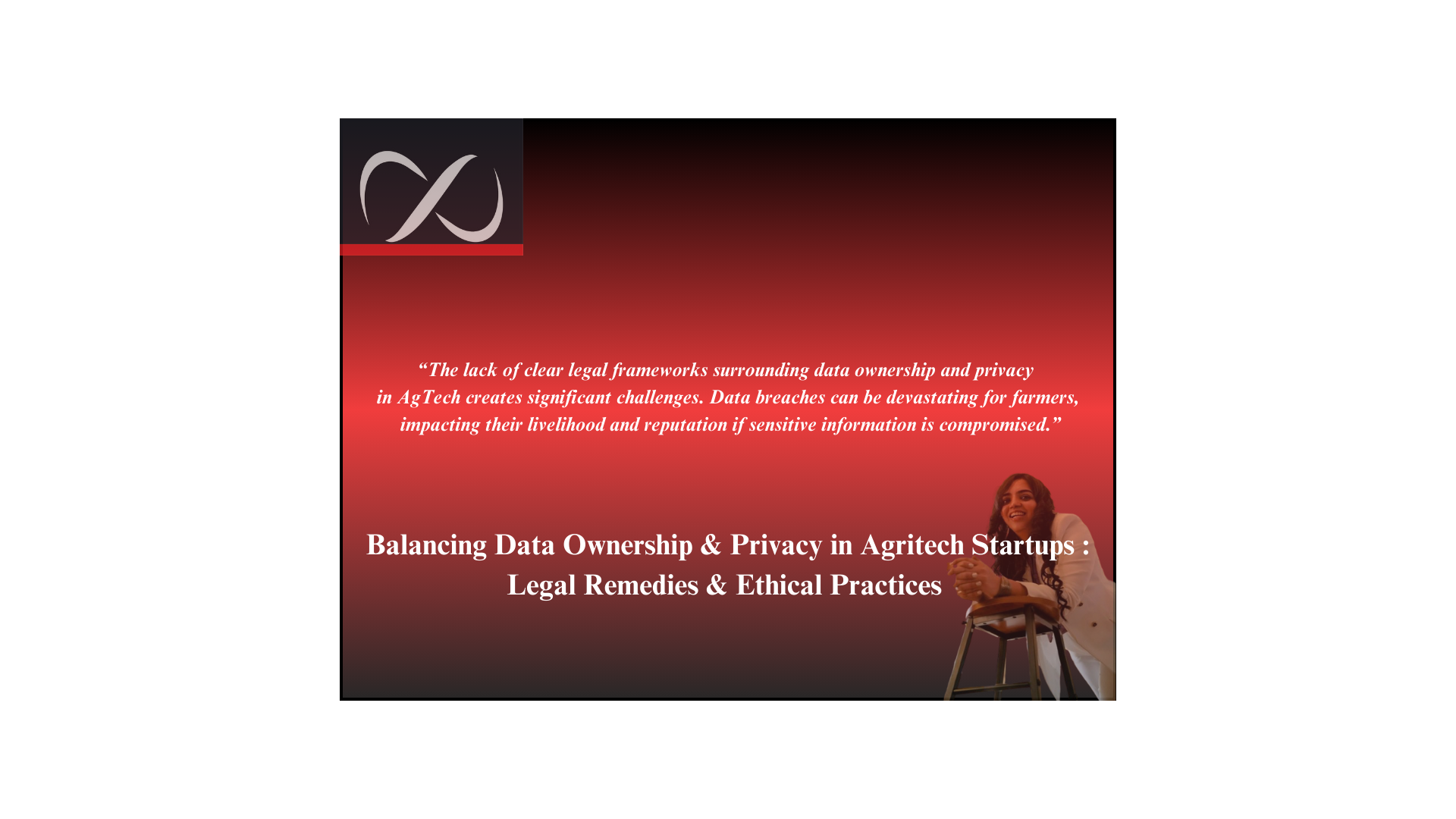
The rise of Agricultural Technology (AgTech) in India promises to revolutionize food production through data-driven solutions. However, this exciting transformation raises critical legal and ethical questions regarding data ownership and privacy for farmers. Striking a balance between fostering innovation and protecting farmer rights is essential for the sustainable growth of AgTech in India.
AgTech solutions collect a vast amount of data – from soil composition and weather patterns to crop yields and livestock health. This data becomes the lifeblood of precision agriculture, enabling smarter resource management, improved yield predictions, and targeted interventions. However, who truly owns this data?
The current landscape is often murky. Is it the farmer who generates the data through their agricultural practices? Or does ownership reside with the AgTech startup that provides the data collection platform and analysis tools? Beyond ownership, concerns around informed consent and transparency are paramount. Do farmers fully understand how their data is collected, used, and stored? Are they aware of the potential downstream applications of their data, and do they have a say in how it’s utilized?
Legal Loopholes and the Need for Remedies
The lack of clear legal frameworks surrounding data ownership and privacy in AgTech creates significant challenges. Data breaches can be devastating for farmers, impacting their livelihood and reputation if sensitive information is compromised. Additionally, the secondary use of anonymized data for research or product development raises questions about implicit consent and potential privacy violations.
To navigate these complexities, several legal remedies can be explored:
1. Standardized Onboarding Contracts
Clear, well-defined contracts should explicitly address data ownership rights. Consider tiered ownership models or explore data trusts as potential solutions.
● Example: An Indian AgTech startup, ABC, developed a standardized contract specifying that farmers retain ownership of raw data while ABC holds rights to aggregated and anonymized data for research purposes. This approach not only clarifies ownership but also aligns with farmers’ interests, ensuring they benefit from the data they help generate.
2. Informed Consent and Transparency
AgTech companies must prioritize providing farmers with accessible and comprehensive explanations of data collection practices, usage, and storage procedures. Obtaining explicit consent before collecting any data is crucial.
● Example: ABC created a farmer-friendly onboarding process, including visual aids and local language support, to ensure farmers understand and consent to data usage policies. This initiative fostered trust and encouraged more farmers to adopt ABC’s technology.
3. Robust Data Security
Strict data security measures like encryption, access controls, and regular penetration testing are essential to protect farmers’ data from unauthorized access or breaches. Compliance with relevant data privacy regulations like GDPR and CCPA is mandatory.
● Example: ABC implemented advanced encryption and multi-factor authentication to secure data and conducted regular security audits to prevent breaches. These measures reassured farmers that their data was protected, promoting a sense of security and trust.
4. Data Portability and Erasure
Exploring options for farmers to access, download, or even erase their data collected by AgTech solutions can empower them and foster trust. Implementing data erasure policies aligned with regulations like the “Right to be Forgotten” under GDPR can further safeguard farmer privacy.
● Example: ABC introduced a feature in their app allowing farmers to download their data and request erasure, giving them control over their information. This feature was well-received by farmers, who appreciated having authority over their own data.
Striking a Balance: Innovation with Responsibility
The future of AgTech in India hinges on striking a delicate balance between innovation and farmer rights. Embracing these legal remedies can pave the way for a data-driven agricultural landscape that fosters responsible data practices. By prioritizing transparency, respecting farmer ownership, and implementing robust security measures, AgTech companies can build trust and ensure the long-term success of their solutions within the agricultural ecosystem.
ABC’s Success Story
ABC, a pioneering Indian AgTech startup, faced significant challenges regarding data ownership and privacy. Initially, farmers were hesitant to adopt ABC’s advanced soil analysis and crop monitoring tools due to concerns about data misuse and lack of clarity on data ownership. Recognizing these issues, ABC took proactive steps to address them.
By collaborating with legal experts and developing comprehensive onboarding contracts, ABC clarified data ownership rights and outlined transparent data usage policies. They also launched educational initiatives to ensure farmers understood how their data would be used and protected. These efforts were instrumental in building trust and fostering adoption.











